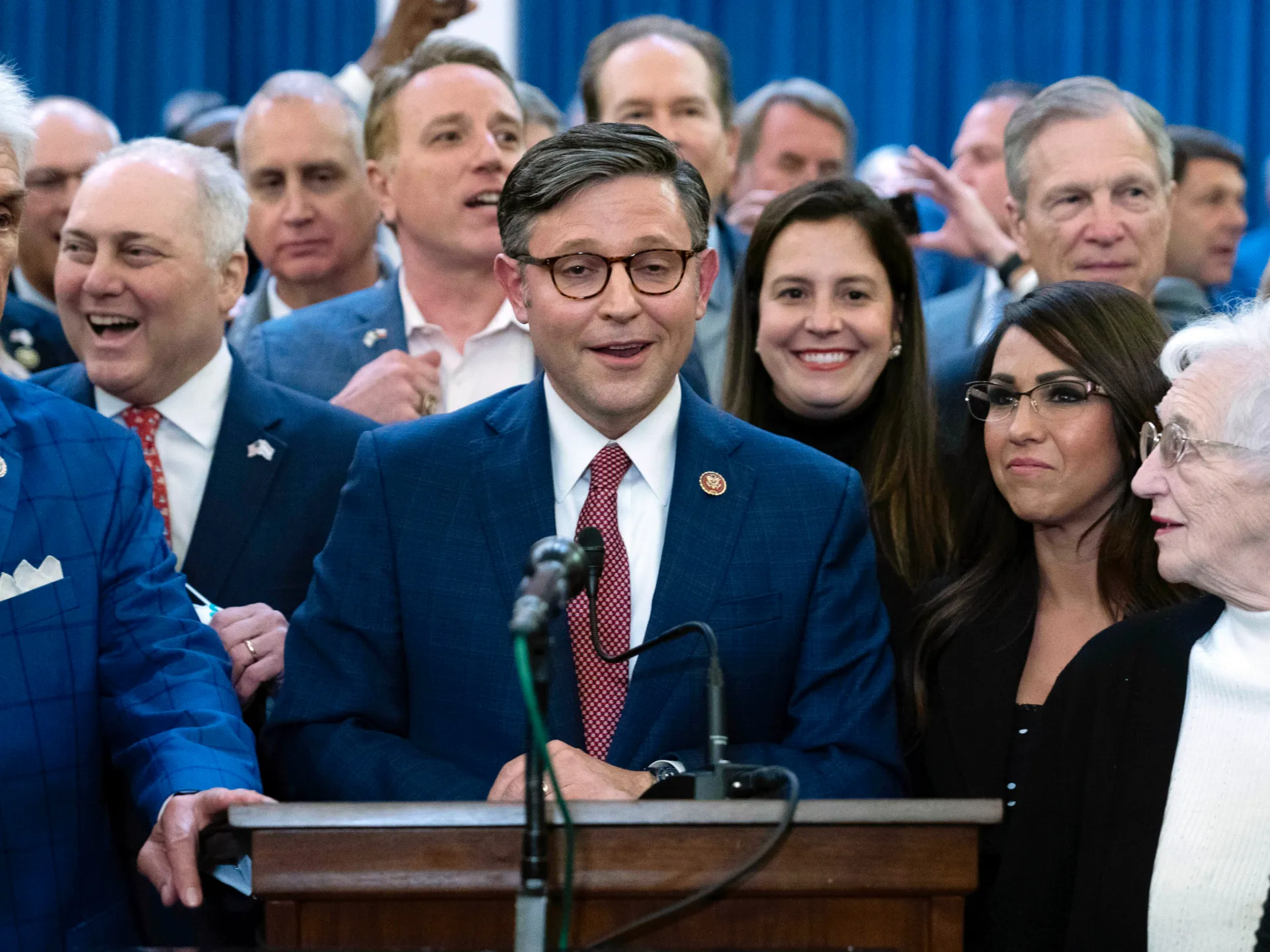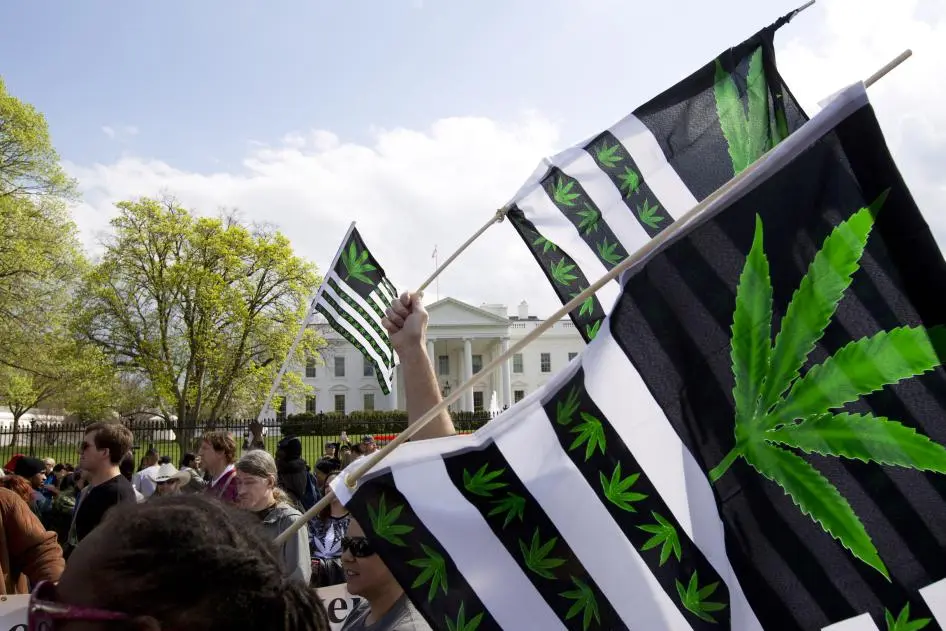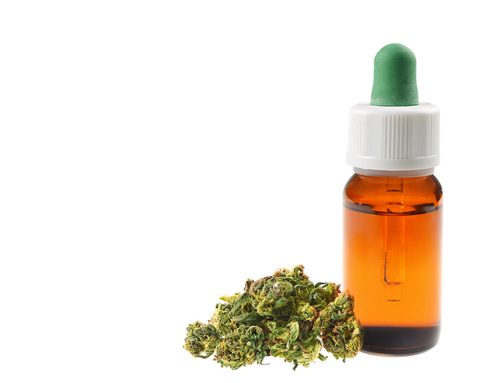OPINION: The People Have Spoken: It’s Time to End Federal Cannabis Prohibition (and Release the Epstein Files)
LOS ANGELES- With 87% of Americans supporting Cannabis legalization — and nearly 80% demanding the release of the Epstein files — public consensus on reform and transparency has never been stronger. The question now is whether Republican leadership will finally act.
Public opinion on Cannabis has reached rare, bipartisan clarity. In the most recent Pew Research Center survey, 87% of U.S. adults say Cannabis should be legal in some form — 54% for adult-use and medical, 33% for medical only, and just 12% want it banned outright.
That level of agreement has held steady for years and spans age, geography, and party affiliation.
Gallup’s long-running data tells the same story: support for legal Cannabis has hit record highs, with majorities across nearly every demographic and political group. Americans are not divided on this issue — they’re united.
And remarkably, Americans are showing similarly overwhelming majorities on a very different question: the demand to release the Epstein files. CBS News poll reportedly found that 89% of Americans believe the Justice Department should release all Epstein documents.
On both issues — Cannabis reform and government transparency — the public’s message is clear: stop hiding the truth and start aligning policy with the will of the people.
Politics vs. Public Will
As of 2025, Republicans hold unified control of the federal government — the White House, the Senate, and the House of Representatives. That means the responsibility, and the opportunity, to modernize federal Cannabis law now lies squarely with Republican leadership.
Yet the federal stance still lags far behind public opinion. The DEA’s proposed move to shift Cannabis from Schedule I to Schedule III was initially welcomed as progress, but Congress has since slowed or resisted it. Even this limited change — which would only ease research barriers and tax burdens — remains stalled in committee. Despite overwhelming support across party lines, Cannabis policy continues to be treated as a partisan gamble rather than a settled issue.
Why Republicans Have Historically Opposed Cannabis
For decades, Republican opposition to Cannabis has been rooted in a blend of ideological, cultural, and institutional forces dating back to the Nixon era. The original “War on Drugs” of the 1970s was as much a political strategy as a public-health campaign — designed in part to target counterculture movements, Black activists, and antiwar protesters. Cannabis became a tool of political messaging: a symbol of permissiveness to be rejected in the name of “law and order.” That legacy still echoes today in conservative rhetoric around drugs, morality, and discipline.
Several key factors continue to drive Republican resistance:
- Law enforcement alliances — Many GOP lawmakers maintain deep ties with police unions and prosecutors’ associations that have long benefited from drug-enforcement budgets and asset forfeiture programs.
- Moral traditionalism — Social conservatives still view Cannabis through a moral lens, associating it with vice rather than wellness or entrepreneurship.
- Generational politics — Older voters, who make up a large share of the Republican base, carry the stigma of the 1980s “Just Say No” era, a worldview resistant to scientific and economic evidence.
- Political signaling — Some Republican leaders fear that embracing Cannabis reform could alienate core supporters or be portrayed as “soft on drugs.”
- Economic interests — In a few regions, prohibition benefits entrenched players — from private prisons to pharmaceutical lobbies — who quietly pressure lawmakers to maintain the status quo.
That resistance is increasingly out of step not only with voters but with a growing number of Republican governors, veterans, and entrepreneurs who recognize that legalization means jobs, tax revenue, and a safer marketplace.
State-Level Backsliding: Overturning the Will of the People
The disconnect isn’t only in Washington. In several Republican-led states, lawmakers are actively working to undo voter-approved Cannabis laws.
In Ohio, after voters passed adult-use legalization, legislators quickly moved to rewrite the measure, proposing reduced THC limits and restrictions on home cultivation. In Nebraska, delays and new obstacles have blocked implementation of medical Cannabis, despite years of public campaigning and clear voter backing. And in Wisconsin, legislative committees struck legalization proposals from the budget entirely.
These efforts amount to overturning the will of the people — reversing democratic outcomes after voters have already spoken. It’s not leadership; it’s resistance to democracy itself.

Mike Johnson Speaker of the House and Republican Leader
The Moral and Economic Case
Ending federal Cannabis prohibition isn’t just an economic or social issue — it’s a moral one. When 87% of Americans agree on something, it represents more than a political trend; it reflects shared values about fairness, freedom, and justice.
Just as the overwhelming majority of Americans believe the sexual abuse and exploitation of young girls is utterly unacceptable — and demand the release of the Epstein files — that same sense of moral clarity applies here. The principle is the same: when the public overwhelmingly rejects secrecy and hypocrisy, leaders have a duty to respond.
The ethical case for reform is matched by an economic one. Federal prohibition distorts markets, discourages investment, and empowers the illicit economy. Meanwhile, state-licensed Cannabis businesses generate billions in tax revenue and tens of thousands of jobs — all while operating under the threat of federal interference. Reform would bring structure, security, and legitimacy to an industry that’s already proven its value.
What Real Federal Reform Should Look Like
Deschedule, don’t just reschedule. Moving Cannabis to Schedule III would ease some constraints, but it wouldn’t solve the core problem. True reform requires removing Cannabis from the Controlled Substances Act entirely, giving states full authority to regulate.
Protect state programs. States that have legalized should not face federal penalties. A national framework should codify safe harbors for banking, insurance, and interstate operations.
Automatic expungement. Millions still carry criminal records for Cannabis offenses that would be legal today. Those records should be cleared automatically.
Equity with intention. Communities disproportionately harmed by enforcement deserve prioritized access to business opportunities, funding, and training in the legal market.
National standards where they help. Federal baselines for testing, labeling, and safety can provide consumer confidence without overriding state control.
Why This Moment Matters
The Cannabis industry is no longer a niche market — it’s a mainstream economic force. Investors, entrepreneurs, and consumers have already moved forward. The only thing lagging behind is the law.
Rescheduling Cannabis is not a substitute for real reform. Without federal descheduling, banking restrictions, interstate commerce barriers, and criminal penalties will persist. The cost of political hesitation is measured in lost opportunity, public frustration, and growing distrust of institutions.
And that distrust runs deep. The same majority that wants Cannabis legalized also demands full transparency around the Epstein files. When voters overwhelmingly agree on two issues — justice and accountability — and the government still refuses to act, the problem isn’t public confusion. It’s political paralysis.

A Responsibility to Lead
Republicans currently hold the levers of power, and that carries a responsibility to act. Ending federal prohibition would not only honor voter will but also strengthen small business, improve safety, and restore faith in democratic process. Refusing to act — or worse, rolling back state laws — sends a dangerous message: that even near-unanimous public opinion can be ignored.
It’s time for federal law to catch up with reality. The people have spoken, loudly and clearly. They want Cannabis legalized, outdated laws repealed, and transparency restored.
If nearly nine in ten Americans agree on anything — whether it’s ending prohibition or releasing long-hidden truths — it’s time for government to stop resisting and start representing. 🌿
Author Mark Collins: President of HCN & Editorial Board Member HCN.




































